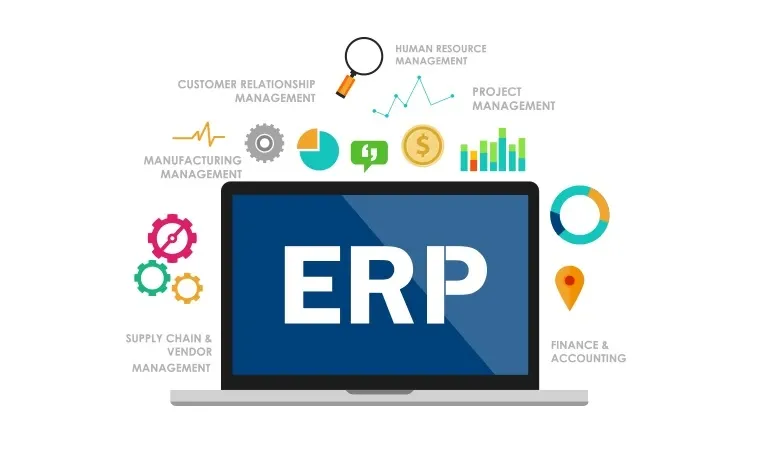In the realm of modern business, managing and optimizing complex operations is crucial for sustainable growth and success. Enterprise Resource Planning (ERP) systems have emerged as powerful tools to streamline processes, integrate data, and enhance decision-making. However, to truly harness the potential of ERP, efficient management is essential. In this article, we'll delve into the significance of ERP management and explore strategies to maximize its benefits for your organization.
Understanding ERP Management
ERP management involves overseeing and optimizing the utilization of an ERP system within an organization. It encompasses various activities, including system administration, configuration, customization, data management, user support, and continuous improvement. Effective ERP management ensures that the system aligns with business goals, adapts to evolving needs, and delivers tangible value across the organization.
Key Aspects of ERP Management
a. System Administration: A well-managed ERP system requires proficient system administration. This involves managing user access, security settings, system backups, and system performance monitoring. Regular maintenance tasks, such as applying updates and patches, are crucial to ensure system stability and security.
b. Configuration and Customization: ERP software systems are highly customizable to meet specific business requirements. Effective ERP management involves configuring the system to match organizational workflows, data structures, and reporting needs. Customization should be approached strategically, balancing the benefits of tailoring the system with the risks of complexity and future upgrades.
c. Data Management: Data is the lifeblood of any ERP system. Proper data management practices ensure data accuracy, consistency, and accessibility. This includes data cleansing, data migration, data integration with other systems, and establishing data governance policies. Data quality checks and regular backups are vital to prevent data loss and maintain system reliability.
d. User Training and Support: User adoption is a critical factor in maximizing the benefits of ERP. Well-managed ERP systems provide comprehensive user training programs to ensure employees understand how to effectively utilize the system. Ongoing user support, such as help desk services and user documentation, helps address user queries, troubleshoot issues, and encourage system utilization.
e. Continuous Improvement: ERP management involves continually assessing and improving system performance and functionality. This includes analyzing system usage, identifying bottlenecks, and implementing enhancements or system optimizations. Regular system audits and feedback loops with users can help uncover areas for improvement and ensure the ERP system evolves with the organization's needs.
Benefits of Effective ERP Management
a. Improved Operational Efficiency: Efficient ERP management streamlines processes, eliminates manual tasks, and reduces redundancies. By automating workflows and providing real-time data access, ERP management enables organizations to optimize resource allocation, reduce costs, and improve productivity.
b. Enhanced Decision-Making: ERP systems capture and consolidate data from various departments, enabling comprehensive analytics and reporting. Effective ERP management ensures accurate and timely data availability, empowering management with valuable insights for informed decision-making.
c. Scalability and Adaptability: Well-managed ERP systems are designed to scale with the organization's growth. They provide flexibility to accommodate changes in business processes, organizational structure, and industry requirements. This scalability enables businesses to expand without the need for significant system overhauls.
d. Regulatory Compliance: ERP management ensures that the system aligns with relevant industry regulations and compliance standards. This includes data privacy, financial reporting, and industry-specific regulations. Maintaining compliance safeguards the organization from legal risks and penalties.
e. Competitive Advantage: Effective ERP management allows organizations to gain a competitive edge by improving customer service, reducing order fulfillment time, and enhancing overall operational agility. It facilitates efficient collaboration, information sharing, and customer relationship management.
Best Practices for ERP Management
a. Establish Clear Goals: Clearly define the objectives and outcomes expected from the ERP system. Align the system configuration, customization, and management strategies with these goals to maximize ROI.
b. Involve Key Stakeholders: Engage stakeholders from different departments and levels of the organization throughout the ERP management process. Their input and feedback are crucial for successful implementation and user adoption.
c. Regular System Monitoring and Maintenance: Implement a systematic approach to monitor system performance, identify issues, and address them promptly. Regular maintenance activities, such as system health checks and data backups, should be performed to ensure system reliability.
d. Invest in Training and User Support: Provide comprehensive training programs and ongoing user support to enhance user adoption and proficiency. This includes user manuals, help desk services, and training sessions tailored to different user roles and responsibilities.
e. Continuous Evaluation and Improvement: Continuously assess the system's effectiveness, user satisfaction, and alignment with business goals. Seek user feedback and actively involve them in the process of identifying and implementing system improvements.
Conclusion
Efficient ERP management is the key to unlocking the full potential of an ERP system. By effectively overseeing system administration, configuration, data management, user training, and continuous improvement, organizations can achieve streamlined operations, data-driven decision-making, and sustainable growth. Embrace effective ERP management practices to optimize your ERP investment and gain a competitive advantage in today's dynamic business landscape.



